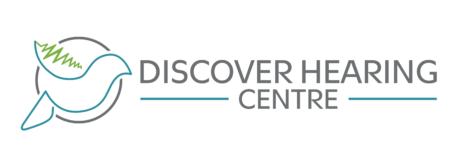How to Maintain and Care for Your Hearing Aids

Hearing aids are an essential part of life for people with hearing loss, helping them stay connected and engaged. But just like any device you rely on every day, they need regular care to keep them in top shape. Routine maintenance can significantly improve your hearing aids’ performance and extend their lifespan.
In this guide, we’ll break down practical tips on cleaning, storing, and maintaining your hearing aids so you can keep them working smoothly for years to come.
Why Regular Maintenance of Hearing Aids Matters
Keeping Your Hearing Aids Performing Their Best
Hearing aids are small but sophisticated devices. Dirt, earwax, and moisture can easily get into the components, causing issues like muffled sound or reduced functionality. Regular maintenance helps prevent these problems, ensuring your hearing aids deliver clear sound and perform reliably.
Extending the Life of Your Devices
Taking good care of your hearing aids can save you money in the long run. Proper cleaning and storage will reduce wear and tear, meaning fewer repairs and replacements. In the long term, this helps protect your investment and keeps you from having to replace your hearing aids prematurely.
Avoiding Common Problems
Moisture, earwax buildup, and battery issues are among the most common problems hearing aid users face. Following a consistent maintenance routine can avoid these hassles and keep your devices in optimal condition. Simple steps like cleaning off earwax and keeping them dry can go a long way.
Step-by-Step Guide to Cleaning Hearing Aids
Daily Cleaning Routine
Cleaning your hearing aids every day is quick and easy. All you need is a soft, dry cloth to gently wipe down the surface of the device. This removes any dirt or oils that may accumulate from handling or wearing them. Remember not to use water or cleaning solutions—they can damage the internal components.
Cleaning the Microphone and Receiver
Focus on the microphone and receiver. Use a small hearing aid brush to gently clean the microphone ports, making sure no debris is blocking sound from getting in. Brush the receiver carefully to remove any buildup that could affect sound quality.
Removing Earwax and Debris
Earwax can easily build up and affect how well your hearing aids work. Use a wax pick or loop to carefully remove any visible earwax from the openings. If you’re having trouble cleaning stubborn buildups, it’s best to get professional help to avoid damaging the device.
Essential Cleaning Tools
There are a variety of cleaning tools designed specifically for hearing aids, including brushes, wax picks, and air blowers. Investing in a proper cleaning kit will make daily maintenance much easier and more effective.
Also Read: How Noise Pollution Affects Your Hearing Health
Best Practices for Storing Hearing Aids
Store in a Dry, Cool Place
Hearing aids are sensitive to heat and moisture. When you’re not using them, keep them in a dry, cool place—away from direct sunlight or humidity. Avoid storing them in the bathroom or near water sources, as moisture can seep in and damage the device over time.
Use a Hearing Aid Dehumidifier
Consider using a hearing aid dehumidifier to prevent moisture buildup, especially if you live in a humid environment. These devices help remove any moisture that may have collected during the day. Specialized dehumidifiers and drying boxes are available, which can significantly extend the life of your hearing aids by keeping them dry.
Safe Storage While Traveling
If you’re on the go, make sure to store your hearing aids in a protective case. This protects them from dirt, dust, and physical damage while you’re not wearing them. Compact travel cases with dry compartments are ideal for both daily use and extended trips.
Also Read: How Long Do Hearing Aids Last? Lifespan & Maintenance
Battery Care and Replacement Tips
Maximizing Battery Life
Handling your hearing aid batteries correctly can help them last longer. Store them in a cool, dry place, and if you’re not using your hearing aids for an extended period, remove the batteries to prevent corrosion. This simple step will prevent issues later on.
When to Check and Replace Batteries
A weak battery can cause distorted or weaker sound. Check the battery level regularly and replace it when you notice a drop in performance. A good habit is to keep spare batteries on hand, especially when travelling or during extended periods away from home.
Preventing Battery Corrosion
Batteries can corrode if exposed to moisture, so make sure the battery compartment is dry before inserting a new one. Storing batteries in dry, cool environments also helps prevent corrosion, which could damage the hearing aids and shorten their lifespan.
Troubleshooting Common Hearing Aid Issues
Poor Sound Quality
If your hearing aid isn’t delivering clear sound, the most likely causes are earwax buildup, moisture, or dying batteries. Cleaning the microphone and receiver, checking the batteries, and ensuring the device is dry can solve these issues.
Hearing Aid Won’t Turn On
If your hearing aid won’t turn on, the first thing to check is the battery. Make sure it’s properly inserted and still has charge. If the battery is fine, inspect the device for moisture or earwax, both of which can affect functionality.
Feedback or Whistling
Whistling or feedback is often due to a poor fit or blockage in the hearing aid. Make sure the device is inserted correctly, and check for any obstructions. If the problem persists, it might be time to have your hearing aids professionally adjusted or refitted.
When to Visit a Professional for Hearing Aid Maintenance
Signs You Need Professional Help
If you’re experiencing persistent issues like sound distortion, poor battery life, or physical damage to the hearing aid, it’s time to seek professional help. Cracks in the casing or frequent malfunctions despite regular cleaning also indicate that your hearing aids may need a tune-up.
Annual Checkups for Hearing Aids
Even with the best care, it’s essential to have your hearing aids professionally serviced at least once a year. A specialist will clean and inspect the devices, ensuring they work as efficiently as possible. Regular professional checkups can catch potential issues before they become costly problems.
Keep Your Hearing Aids in Top Shape
Regular cleaning, proper storage, and battery care are essential for keeping your hearing aids performing their best. By following these simple steps, you’ll enjoy clear, uninterrupted sound and extend the life of your devices. Remember to schedule check ups whenever you need them, whether monthly, quarterly or annually. Discovery Hearing Centre is always here to help you with a clean and check for your hearing aids.
Visit our hearing clinic in Kitchener and schedule a hearing test with our professional experts. We offer comprehensive audiology services, from hearing tests and education to digital hearing aids and personalized hearing loss treatments that put you and your specific hearing health needs at the centre. Whether you need a hearing test, are looking for hearing aid repairs, hearing aid batteries, invisible hearing aids, custom-moulded earplugs, or require help with hearing aid fittings and programming, Discover Hearing Centre is here for you.
Discover Hearing Centre is a local clinic specializing in the treatment of hearing loss; we’ve worked with hundreds of patients to help them maintain independence. Whether you’re experiencing hearing loss or tinnitus, we’re dedicated to improving your quality of life through better hearing. When you choose us, you choose a team committed to your well-being.
Call us today at 519-208-4327 or fill out our convenient online form to learn more about how we can help you with hearing loss issues.
You Might Also Like
Top 4 Major Causes of Hearing Loss
What Is Tinnitus? Causes, Symptoms, and Treatment Options
Does Tinnitus Get Worse With Age?
Have Questions?
Call our office if you have any questions about your hearing loss or anything else related to hearing. We are happy to help and answer any questions you may have.





